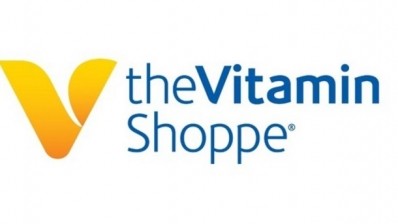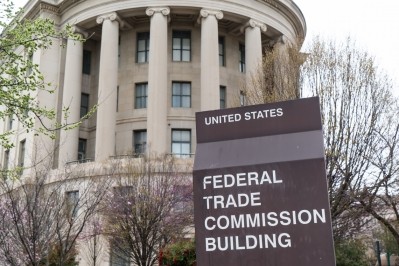Marketers of Prevagen charged with making false and unsubstantiated claims by FTC, NY AG

Quincy Bioscience has run extensive national advertising campaigns for its Prevagen product, including TV spots on national broadcast and cable networks such as CNN, Fox News, and NBC. The ads feature charts depicting rapid and dramatic improvement in memory for users of the product.
The new complaint from the FTC and NY AG alleges that the marketers relied on a study that failed to show that Prevagen works better than a placebo on any measure of cognitive function.
“The marketers of Prevagen preyed on the fears of older consumers experiencing age-related memory loss,” said Jessica Rich, director of the FTC’s Bureau of Consumer Protection. “But one critical thing these marketers forgot is that their claims need to be backed up by real scientific evidence.”
“We vehemently disagree with these allegations”
Quincy Bioscience responded strongly to the complaint, and issued this statement: “We vehemently disagree with these allegations made by only two FTC commissioners. This case is another example of government overreach and regulators extinguishing innovation by imposing arbitrary new rules on small businesses like ours.
“Quincy has amassed a large body of evidence that Prevagen improves memory and supports healthy brain function. This evidence includes preclinical rat studies, canine studies, human clinical studies, and, most importantly, randomized, double-blind, placebo-controlled human clinical testing. This type of testing has long been acknowledged by both the FTC and the FDA to be the ‘gold standard’ for scientific evidence.”
On the Prevagen website (accessed January 10, 2016), Quincy Bioscience presents two scientific studies for its product: One is a safety study, which was published in 2013 in Food and Chemical Toxicology (Vol 57, Pages 1–10), and the second is a randomized, double-blind, placebo-controlled trial with 211 people aged 40-91. The RCT data was not published in a peer-review journal. No statistically significant results were observed for the entire study cohort, but significant results were observed in healthy or very mildly impaired participants, state the study authors.
[A second safety assessment has been published in Regulatory Toxicology and Pharmacology, 2014 Vol. 69, No. 2, pp. 243–249]
The Quincy Bioscience statement continues: “The FTC does not allege that Quincy’s principal clinical study fails to meet the FTC’s and FDA’s own definition of ‘gold standard,’ nor does the FTC allege that the study was poorly designed or inappropriately conducted, or that it failed to rely on scientifically-validated measures.
“The sole dispute rests on the interpretation and analysis of the data, with the regulators attempting to hold the company to a standard that is unreasonable, scientifically debatable, and legally invalid. Their experts simply disagree with ours over how to interpret the study results.”
NY AG Schneiderman: “The marketing for Prevagen is a clear-cut fraud”
The federal court complaint alleges that the defendants enticed consumers to spend anywhere from $24 to $68 for bottles of 30 supplement pills by touting the product’s active ingredient – apoaequorin, a protein derived from jellyfish – to improve memory and reduce memory problems associated with aging.
The agencies allege that the defendants’ marketing claims have violated the FTC Act and New York state laws. The agencies are seeking refunds for consumers who bought the deceptively marketed product.
Prevagen is widely available at major retailers such as Amazon, CVS, the Vitamin Shoppe, and Walgreens, and is also sold directly on the defendants’ websites. Sales of Prevagen totalled $165 million between 2007 and mid-2015, according to the complaint.
“The marketing for Prevagen is a clear-cut fraud, from the label on the bottle to the ads airing across the country,” said New York Attorney General Eric Schneiderman. “It’s particularly unacceptable that this company has targeted vulnerable citizens like seniors in its advertising for a product that costs more than a week’s groceries, but provides none of the health benefits that it claims.”
The agencies have charged corporate defendants Quincy Bioscience Holding Company, Inc.; Quincy Bioscience, LLC; Prevagen, Inc., doing business as Sugar River Supplements; and Quincy Bioscience Manufacturing, LLC. The agencies also charged the two co-founders of the company, CEO Michael Beaman and President Mark Underwood who appeared in infomercials for the product.
The Commission vote authorizing the staff to file the complaint was 2-0, with Commissioner Maureen Ohlhausen not participating. The complaint was filed in the U.S. District Court for the Southern District of New York.
In its statement, Quincy Bioscience said: “It is unprecedented for a complaint like this to be brought by only two sitting commissioners, let alone two commissioners from the same party. The FTC is supposed to be headed by five Commissioners, representing a diversity of political backgrounds. Chairwoman Ramirez, one of the FTC Commissioners who voted in this matter, has herself acknowledged the benefits of a full, five-member Commission.
“Quincy Bioscience will vigorously defend ourselves. The Americans who rely on Prevagen to improve their lives deserve nothing less.”
Warning letter
This is not the first time the company has found itself in the cross-hairs of regulators. Quincy Bioscience received a warning letter from the FDA dated October 16, 2012 that, among other things, alleged that apoaequorin was an unapproved new drug.
“Apoaequorin synthetically produced from [redacted] is not a vitamin, mineral, amino acid, herb or other botanical, or dietary substance for use by man to supplement the diet by increasing the total dietary intake. Further, apoaequorin synthetically produced from [redacted] is not a concentrate, metabolite, constituent, or extract of any dietary ingredient, nor is it a combination of dietary ingredients. Therefore, the synthetically produced apoaequorin used in your Prevagen products is not a dietary ingredient as defined in section 201(ff)(1) of the Act,” states the warning letter.
A New Dietary Ingredient Notification was submitted by Quincy Bioscience earlier that year (May 30, 2012), but the FDA stated it was unable to establish the safety of the ingredient based on either history of use or on the toxicological data provided. A GRAS notification was filed with the Agency on March 17, 2015 but subsequently withdrawn by the company.
According to the FAQ section on company’s website (accessed January 9, 2016), the ingredient's GRAS status has been self-affirmed by a third party panel of experts: “Apoaequorin, the main ingredient in Prevagen, has undergone extensive safety testing which is typical for dietary supplements. Tests for allergenicity and toxicity at dosages at much higher levels than recommended equivalents were administered, and no adverse effect was observed. Third party experts agree on the safety of apoaequorin.”
An area of interest for the regulators
Steve Mister, President & CEO, CRN, told NutraIngredients-USA: "Memory/cognitive claims have been an area of particular interest to the FTC for some time, as illustrated by the investigation and settlement with iHealth several years ago. This area appears to continue to be one of particular interest to the FTC due to the potential to target the elderly and their concerns over dementia.
"We want to remind the industry that the substantial precedent created by the CRN-National Advertising Division (NAD) program on dietary supplement advertising reviews can be a good resource to companies as the NAD’s decisions often provide a good roadmap of which claims will pass muster and what may be required to substantiate particular claims. The NAD has issued no less than 12 cases specifically dealing with cognitive function and memory improvement claims. Taking note of these decisions can be helpful in developing appropriate claims based on the available science.
"We are eager to see the specifics of the FTC and NY Attorney General’s allegations and the clinical research on which the company has based its claims. Often these cases require reviewing and understanding the specific research that was conducted, the rigor and thoroughness of the science and the limitations that may exist."















